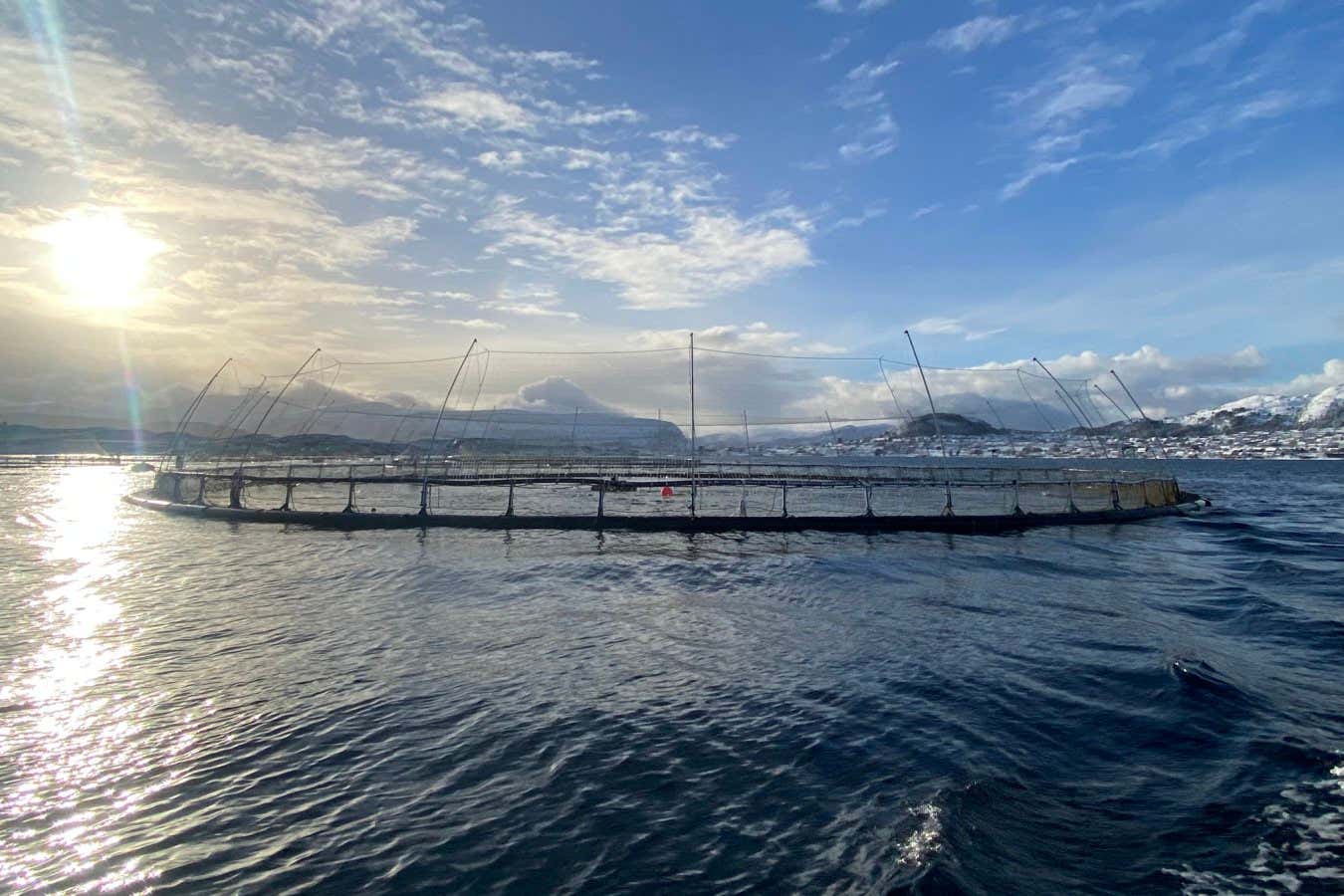Producing a kilogram of farmed salmon may require 4 or 5 kilograms of wild fish, which isn’t a sustainable approach to feeding the world’s growing population
By Michael Le Page
16 October 2024
Claims about the sustainability of fish farms have been vastly overstated
VIKEN KANTARCI/AFP via Getty Images
It has been claimed that fish farming is a sustainable source of food that will help us feed the growing global human population while protecting wild fish populations – but this isn’t true.
“Fish farming is not a substitute for catching wild fish out of the ocean,” says Matthew Hayek at New York University. “In fact, it relies on catching wild fish out of the ocean.”
Read more
Spreading rock dust on farms boosts crop yields and captures CO2
Advertisement
Hayek and his colleagues have shown that the amount of wild fish killed in order to feed farmed fish is between 27 and 307 per cent higher than previous estimates.
Farmed carnivorous fish eat multiple times more weight in wild fish caught from the ocean than is obtained by farming them, says Hayek. For instance, producing a kilogram of salmon may require 4 or 5 kilograms of wild fish.
But catches of wild fish are not increasing alongside the growing demand for farmed fish. “For multiple fisheries, we’re moving towards a scarcity of fish in the ocean,” says Hayek.
